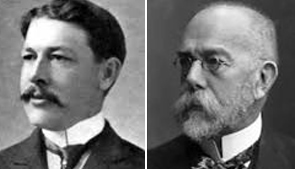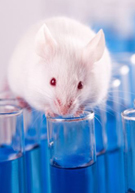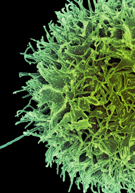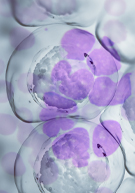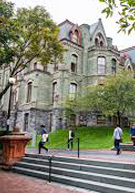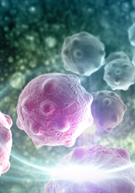

![]()
Unless you've been purposely ignoring the news for the past few decades, you may have missed the many headlines about Immunology as the clinical paradigm that's completely taken the world of cancer care news by storm. This advancement in treatment strategies is a game-changer in the fight and a confident solution in safer and more proven solutions! Today's survivors are attributing their success to Immunotherapy, bringing more patients into remission each day- instead of the "death sentence" that used to align with cancer. Meanwhile, the global community of medical researchers continue to uncover new answers as part of their united search for THAT cure - and shaping our bright new reality.

TELEMEDICINE: A SAFELY-PROTOCOL FOR THE IMMUNE COMPROMISED
Elderly patients or those with chronic conditions may find it difficult (and even precarious) to travel to their doctors' office and sit in a waiting room with other sick people with unknown conditions. Advancing this scenario to an electronic doctor's visit or TELEMEDICINE is an available reality that can easily address this concern. Otherwise known as the "digital house call", TeleMedicine is one of the current updates in patient care. Now, doctors and patients are able to convert many elements of the standard office visits to a virtual consultation or a remote, face-to-digital face exchange. TeleMedicine implements health-related services and shares information digitally through REMOTE communications. Patient and clinician contact and care is done electronically where much of THE CONSULTATION (such as patient advisement, reminders, education, intervention, health monitoring, and remote admissions) are done without any physical office presence required. (sponsored by: http://telemedscans.com/)
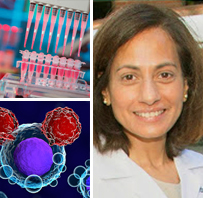
"TEACHING" T-CELLS TO KILL CANCER TUMORS (with Dr. Aisha Hasan)
The initial success achieved by all researchers during this time have set the stage for the main development of T-cell therapies for cancer. According to Dr. Hasan, "what we've been able to do right so far with T-cell therapies is cancer antigens that are ubiquitously or constantly expressed on the surface of the cell. However, the bulk of cancer associated antigens present on solid tumors are in fact intra-cellular, and not easily targeted. They cannot be targeted with the CAR-T that have been approved thus far. Therefore, T-cells engineered to express TCRs are attractive as a therapeutic approach because they are able to target intra-cellular antigens associated with tumor cells. (SEE ARTICLE LINK)

DEVELOPING CYBERKNIFE® AND THE ERA OF ETHICS IN ENGINEERING
Today's engineering and medical technology (from the late 1980s) show significant evidence of ethical standards and major consideration for patient response. Ethics in treatment engineering covers all angles considered about the innovation including: the way it is built, the materials applied, the engagement of the operator and the aftermath of the patient.. “Historically, radiation CAUSED cancer, but that's because you didn't have precision then. You were basically irradiating healthy tissue. That's what you want to avoid at all costs. So the more precise you can be, the better - and we (Accuray) pride ourselves on exquisite and unparalleled precision,” says Ms. Fleurent.
Published by the NY Cancer Resource Alliance (SEE ARTICLE LINK)
| Source: National Cancer Institute posted Mar 25, 2016 (Youtube Channel) |
Recognized as the father if immunotherapy, Dr. Steven Rosenberg is featured in this short excerpt from the documentary, “Cancer: The Emperor of All Maladies, PBS”. Dr. Rosenberg of the National Cancer Institute’s Center for Cancer Research discusses his work in immunotherapy and its promise for cancer patients. His journey began when he witnessed one of the rarest events in medicine—the spontaneous regression of a tumor. Early in his career, he had encountered a young man whose cancer had disappeared. Rosenberg, who’s now the chief of surgery in the National Cancer Institute (NCI), believed that the answer had to lie in the patient’s own immune system. (source link)
| Source: National Cancer Institute - Published on Jun 13, 2018 (Youtube Channel) |
The immune system is one of our basic and most important systems in our body designed to protect us from potential threats from outside our body, as well as from abnormalities and abnormal cells that are generated from within. It's able to accomplish this miraculous task through a combination of cells and through communication molecules called cytokines. Together, they work together to weave an impenetrable web that, in most cases, should protect us from all sorts of severe and chronic diseases. But if we're exposed to things that can damage the immune system (such as poor nutrition, infections, toxins, traumas or severe stresses) a rip in the fabric can lead to our loss of protection that could lead to severe or chronic illness.
| Dr. Noelle Cutter Interview- Source: Molloy College TV Aired October, 2019 |
The movement continues to take flight in all areas of the medical community. The NY CANCER RESOURCE ALLIANCE recently discovered this clip from the Molloy College public access broadcast (part of the Catholic Faith Network) called "Public Square 2.0" This episode features Dr. Noelle Cutter, professor of Natural Sciences/ Chemistry Dept. She discusses the modern age of clinical science and the many safer and more effective treatments available - including the benefits of Immunology. Also see Dr. Cutter's presentation @TEDx TALKS- "GetZ Approach to Curing Cancer"
|
|
|
||||||
|
|
|
| Educational Animated Videos about Immunology |
|
|
||||
|
|
||||
| Immunology Articles from Relevant Publications |
|
ENGINEERED KILLER T-CELLS COULD PROVIDE LONG-LASTING IMMUNITY AGAINST CANCER |
||||||
INNATE IMMUNE CELLS MAY ACTUALLY REMEMBER THEIR TARGETS Human natural killer cells, previously considered not to participate in adaptive immunity, remember viral antigens after initial exposures, according to a new study. Scientists have long believed that humans and many other mammals have two types of immune systems: innate and adaptive. The former is driven by natural killer (NK) cells, which attack any cell it identifies as non-self, the latter by B and T cells that form long-term memories of particular antigens they meet so they are more prepared to fight that antigen in the future. The NK cells are thought to form the first barrier of defense against any incoming pathogen, poking holes in the cells to kill them. . (click for complete article at THE SCIENTIST) |
|||||||
| GENE THERAPY EFFECTIVE FOR SEVERE COMBINED IMMUNODEFICIENCY Apr 17, 2019 | Shawna Williams | The Scientist (link) Researchers report they’ve found a way to restore immune function in infants with one form of “bubble boy disease.” Treating infants with X-linked severe combined immunodeficiency with low-dose chemotherapy followed by gene therapy gave the children the ability to make the cells needed to mount a normal immune response, researchers report today (April 17) in the New England Journal of Medicine. The finding marks a milestone in the long effort to use gene therapy for the devastating condition, also known as bubble boy disease, which requires untreated patients to be isolated in order to protect them from life-threatening infections. Experts caution that longer follow-up is needed to determine whether the gene therapy–treated patients are truly cured. (click for complete article at THE SCIENTIST) |
|||||||
| TUMOR ORGANOIDS HOLD PROMISE FOR PERSONALIZING CANCER THERAPY Jul 15, 2019 | Jef Akst | The Scientist (link) The three-dimensional cell cultures are still in the development phase, but researchers are excited about their use to predict patients’ responses to various treatment options. As researchers improve ways to quickly and cheaply sequence DNA, the concept of precision medicine is gaining a foothold in the medical community. When it comes to cancer, a disease that leaves its mark in a patient’s genome, sequencing tumor DNA to tailor treatment plans to individuals seems an obvious application of the technology. “The idea of precision medicine as in individualized treatment, I think that makes so much sense,” says Alice Soragni, a cancer biologist at the University of California, Los Angeles (UCLA) David Geffen School of Medicine. “When you work with a few of these tumors, each and every one is a bit different.” (click for complete article at THE SCIENTIST) |
|||||||
|
|
FDA APPROVES CAR T THERAPY FOR LARGE B-CELL LYMPHOMA DEVELOPED AT UNIVERSITY OF PENNSYLVANIA May 01, 2018 | from original source- PENN MEDICINE News Nation’s first approved personalized cellular therapy now available for second indication!PHILADELPHIA – The FDA has expanded approval for a personalized cellular therapy developed at the University of Pennsylvania’s Abramson Cancer Center... today’s approval includes treatment of diffuse large B-cell lymphoma (DLBCL) – the most common form of non-Hodgkin’s lymphoma – as well as high grade B-cell lymphoma and DLBCL arising from follicular lymphoma. The approval was granted today to Novartis for the chimeric antigen receptor (CAR) T-cell therapy Kymriah® (tisagenlecleucel, formerly CTL019), making it the second indication for the nation’s first personalized cellular therapy for cancer... The FDA’s action is the latest accomplishment in the alliance between Penn and Novartis, which entered into a global collaboration in 2012 to further research, develop, and commercialize Kymriah and other CAR T-cell therapies for the treatment of cancers. (click for complete article at the PENN MEDICINE NEWS) |
||||||
 |
HOW LONG DOES 'CHEMO BRAIN' LAST? Cancer survivors have long complained of cognitive decline following chemotherapy. This effect has been studied in some depth, but, for the first time, researchers ask how long these deficits might last. As treatments for cancer improve, survival rates increase, as do the number of cancer survivors. This growing population of people who have come through cancer and lived to tell the tale often report cognitive deficits. (click for complete article at Medical News Today)
|
||||||
TACKLING THE LONG-TERM ADVERSE EFFECTS OF CHEMOTHERAPY Significant advances have been made in cancer treatment in the last decades. However, emerging research suggests that chemotherapy may come at a high price, causing chronic damage to healthy tissue and limiting treatment tolerability. Dr Roland Jurecic, Associate Professor of Immunology, Microbiology and Cell Biology at the Miller School of Medicine, University of Miami, is embarking on a promising new trial that could bring new hope for cancer patients and survivors to reduce the harmful effects of chemotherapy on healthy organs. (click for complete article @ResearchFeatures) |
|||||||
 |
WHAT ARE THE SIDE EFFECTS OF CHEMOTHERAPY? Chemotherapy can prolong a person's life, and potentially rid them of cancer. Side effects are unpredictable and depend on the type of chemo drug a person is using. Illness, easy bruising or bleeding, and hair loss are some of the most common side effects. Chemotherapy cannot tell normal cells apart from cancer cells and kills both, which is why side effects occur. Most people receiving chemotherapy will experience side effects.
|
||||||
 |
THE END OF TOXIC CHEMO? BLOCKING VITAMIN B-2 MAY STOP CANCER New research published in the journal Aging finds a compound that stops cancer cells from spreading by starving them of vitamin B-2. The findings may revolutionize traditional chemotherapy. A team of British-based researchers set out to find a non-toxic therapeutic agent that targets the mitochondria of cancer cells. Mitochondria are energy-producing organelles found inside each cell. The compound recently found by the scientists can stop cancer stem-like cells from proliferating by interfering with their energy-creating process inside the mitochondria. (click for complete article at Medical News Today) |
||||||
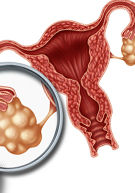 |
OVARIAN CANCER: IMMUNOTHERAPY MAY OVERCOME CHEMOTHERAPY RESISTANCE Ovarian cancer is often diagnosed when it is at an advanced stage, so chemotherapy is a key part of treatment. However, the cancer eventually develops resistance to chemotherapy - a major reason for its low survival rate. Now, new research suggests it may be possible to overcome chemotherapy resistance in ovarian cancer by adding immunotherapy to the chemotherapy. In the journal Cell, researchers from the University of Michigan in Ann Arbor describe how they reversed chemotherapy resistance in mouse models of ovarian cancer by boosting the animals' immune T cells. (click for complete article at Medical News Today)
|
||||||
|
||||||
| Current Blog Articles about Immunology |
|
||||||||||
| Expanded sections coming soon | |||||
 |
 |
 |
 |
 |
 |
| Our editors are currently in the process of developing these sections. Check back with us again by September 15 for our official launch date. | |||||
| Founding Organizations | |
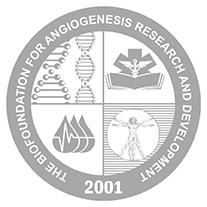 |
Since its official launch in Dec., 2001, the Biofoundation for Angiogenesis Research and Development (aka AngioFoundation - 501C3) was established to conduct various disciplines of clinical research to support the advancement of technologies, treatment protocols and diagnostic science. The AngioFoundation has since been recognized worldwide by official medical organizations and peer reviews for its work in various cancer diagnostic focal studies and class divisions. We continually maintain and update research work in these categories to support the advancement of these disciplines as part of The AngioFoundation's commitment to the scientific community. In addition, the AngioFoundation's public mission also pursues education and awareness efforts pertaining to cancer topics as they affect our community at large. http://angiofoundation.org/ |
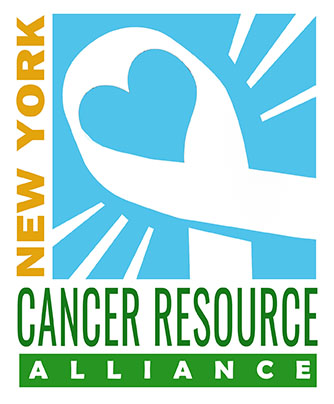 |
The New York Cancer Resource Alliance is a privately managed Linkedin-based private group of cancer related professionals produced by ‘Awareness for a Cure’ - a network of cancer foundations and awareness groups. We are comprised of dedicated healthcare providers, researchers, educators, foundations and advocates who are committed to bringing community support and care to cancer patients and survivors everywhere. Together, we form a network of caregivers joined to establish a support system for one another. http://nycralliance.org/ |


